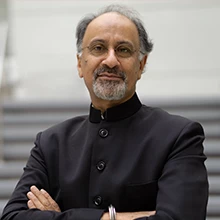 يمكن أن يؤدي وقف هذا الهدر إلى توفير تريليون دولار على الأقل سنويا لوضع الاقتصادات على مسار تنمية خضراء وقادرة على الصمود وشاملة للجميع.
يمكن أن يؤدي وقف هذا الهدر إلى توفير تريليون دولار على الأقل سنويا لوضع الاقتصادات على مسار تنمية خضراء وقادرة على الصمود وشاملة للجميع.
The global economic downturn is restricting the ability of governments to “build back better” in the face of the extraordinary challenges of COVID-19 and climate change. The decline in growth is shrinking nations’ fiscal space as they attempt to reignite their economies while grappling with unprecedented levels of debt, reductions in tax collection, and increasing income inequality.
Yet an untapped source of funds is hiding in plain sight. Governments today spend an estimated $13 trillion each year on public contracts for goods, services and public works . As much as a quarter of that is wasted in inefficient or shortsighted procurement practices. Halting the waste could free up at least $1 trillion a year to put economies on a path toward green, resilient, and inclusive development.
That potential, unfortunately, has been passed up for far too long. Despite its large role in global economic activity, public procurement is an underdeveloped professional discipline. Little shared global understanding exists of what constitutes best practices, and procurement decisions are seldom made on the basis of hard evidence of what works and what doesn’t. Procurement is often a check-the-box exercise, designed to ensure procedural compliance rather than broad economic benefits. Meanwhile, political influence and connections continue to drive far too many decisions about who gets what contract.
COVID, however, has been a wake-up call for governments. The pandemic has fueled growing public demand for more and better services, putting pressure on governments to do more with less , more quickly. It has highlighted the pressing need for governments to ensure that public purchasing decisions deliver “social value” by going beyond fiscal savings to include broader policy goals such as environmental sustainability, support for small enterprises, and protection of vulnerable groups in society.
All of that can be done. Government purchasing should be more than just a transactional business process that helps increase the efficiency of spending and free up fiscal space. Public procurement must be a strategic tool for socioeconomic change that uses government purchasing decisions and technology more strategically—going beyond economic efficiency considerations and accounting to support broader policy goals such as environmental stewardship, resilient and inclusive economic development. and social protection.
"Halting the waste could free up at least $1 trillion a year to put economies on a path toward green, resilient, and inclusive development."
A new World Bank report, An International Stocktaking of Developments in Public Procurement- Synthesis Report, offers a way forward. It shows how the current hodgepodge of procurement practices with few common rules could be replaced by an efficient global system that better serves the public’s needs. But it will take a broad international coalition—involving governments as well as private businesses—to seize the full potential of public procurement and set the global economy on a more sustainable path.
The World Bank is proposing the creation of a Global Procurement Partnership (GPP) for just that purpose. The GPP’s overarching goal will be to establish a global network to promote the strategic use of public procurement as a critical economic planning and development tool. The GPP will collect best practices from around the world to strengthen knowledge sharing and collaboration. It will also establish globally recognized principles or benchmarks.
Governments have many ways to pursue social value in procurement—including in their use of contracts to promote innovation or strengthen key industries or sectors of the national economy. Policies that enable micro, small and medium enterprises to flourish can also boost a country’s longer-term competitiveness.
Contracts can also be a way for governments to promote environmental policies. “Green” procurement focuses on responsible and sustainable goods, services and works. The label also refers to work methods that minimize environmental damage or degradation and build resilience in addressing the impacts of climate change. In addition, procurement policies need to start paying attention to the planning and management of contracts—instead of just the call for competition or the selection of a winner.
COVID-19, moreover, has demonstrated how new technologies open up important avenues for enhancing security, information access, and citizen engagement. By moving procurement processes online, it has eliminated the need for physical interaction and will soon make hard-copy document submissions a strange quirk of the past. As governments ramp up the use of Electronic Government Procurement Systems (e-GP), more opportunities will emerge for information sharing, evaluation of procurement options, and cost management. This will enable governments to respond faster to crises.
The GPP is a timely proposal. It can help ensure that national procurement policies are evidence-based and resistant to political influence and privilege. It can spark innovation in crucial areas by encouraging tighter collaboration between governments and private enterprises. It can help improve public trust by increasing citizen empowerment and engagement.
In the aftermath of COVID-19, governments will be under justifiable pressure to make sure that every dollar of expenditure goes as far as it possibly can. Citizens are within their rights to demand that their money be spent as wisely as possible. Smarter public procurement is central to a green, resilient, and inclusive recovery from the pandemic : governments, private enterprises, and development institutions should do everything in their power to seize the $1 trillion opportunity it represents.


Join the Conversation